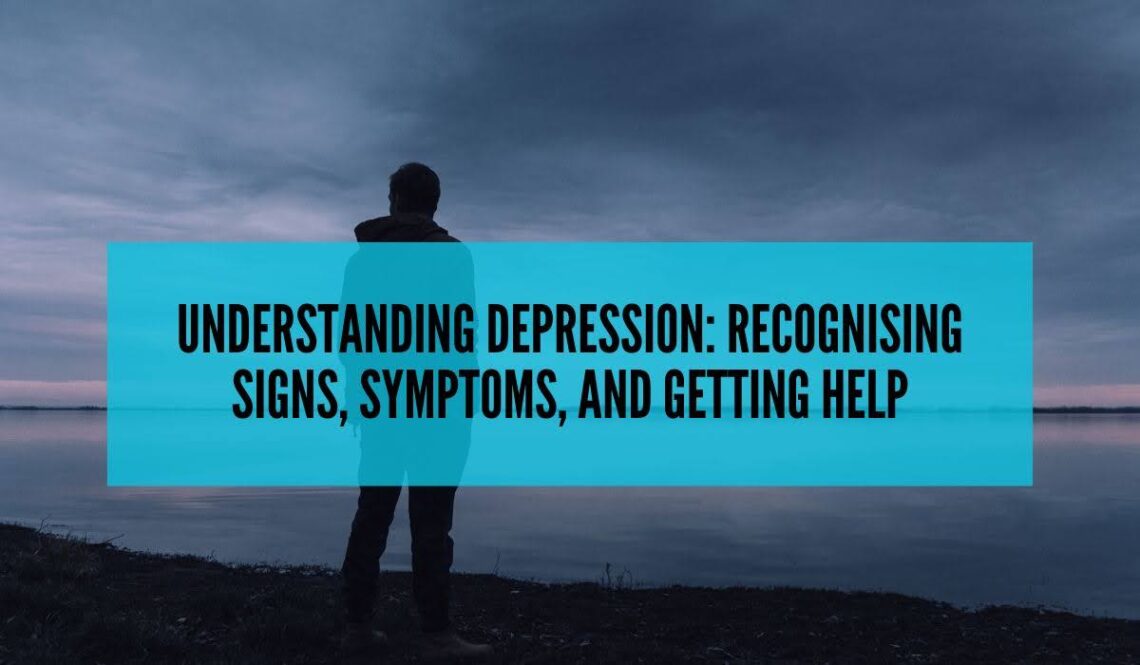
Understanding Depression: Recognising Signs, Symptoms, and Getting Help
Depression is a common but serious mental health condition that affects millions of people worldwide. It can have a profound impact on all aspects of a person’s life, from their relationships and work to their physical health and overall well-being. In this blog post, we’ll explore what depression is, how to recognise its signs and symptoms, and where to turn for support.
First and foremost, it’s important to understand that depression is more than just feeling sad or down from time to time. While everyone experiences periods of sadness or low mood, depression is a persistent and overwhelming feeling of sadness, hopelessness, and emptiness that lasts for weeks, months, or even years. It can affect people of all ages, genders, and backgrounds, and it’s not something that can simply be “snapped out of” or “cheered up.”
There are many different symptoms of depression, and they can vary from person to person. Some common signs of depression include:
- Persistent sadness or low mood that lasts for most of the day, nearly every day.
- Loss of interest or pleasure in activities that were once enjoyable, such as hobbies, socialising, or spending time with loved ones.
- Changes in appetite or weight, either significant weight loss or weight gain.
- Changes in sleep patterns, such as insomnia or oversleeping.
- Fatigue or low energy, even after a full night’s sleep.
- Feelings of worthlessness or excessive guilt.
- Difficulty concentrating, making decisions, or remembering things.
- Thoughts of death or suicide, or suicide attempts.
It’s important to note that not everyone with depression will experience all of these symptoms, and the severity of symptoms can vary widely from person to person. Additionally, depression can co-occur with other mental health conditions, such as anxiety or substance abuse, further complicating diagnosis and treatment.
If you or someone you know is experiencing symptoms of depression, it’s crucial to seek support and treatment as soon as possible. Depression is a treatable condition, and the sooner it’s addressed, the better the chances of recovery.
One of the first steps in seeking help for depression is talking to a healthcare professional, such as a doctor or therapist. They can assess your symptoms, provide a diagnosis, and recommend appropriate treatment options. Treatment for depression may include therapy, medication, or a combination of both, depending on the severity of symptoms and individual needs.
In addition to professional treatment, there are also many self-care strategies that can help manage symptoms of depression and promote overall well-being. These may include:
- Engaging in regular physical activity, such as walking, yoga, or swimming, which has been shown to improve mood and reduce symptoms of depression.
- Practising relaxation techniques, such as deep breathing, meditation, or progressive muscle relaxation, to help calm the mind and reduce stress.
- Maintaining a healthy lifestyle, including eating a balanced diet, getting enough sleep, and avoiding alcohol and drugs, which can exacerbate symptoms of depression.
- Building a strong support network of friends, family members, or support groups who can provide emotional support and encouragement during difficult times.
Depression is a common and serious mental health condition that can have a profound impact on a person’s life. By understanding the signs and symptoms of depression and seeking support and treatment when needed, individuals can take steps towards managing their symptoms and improving their overall well-being. If you or someone you know is struggling with depression, don’t hesitate to reach out for help – you are not alone, and support is available.



